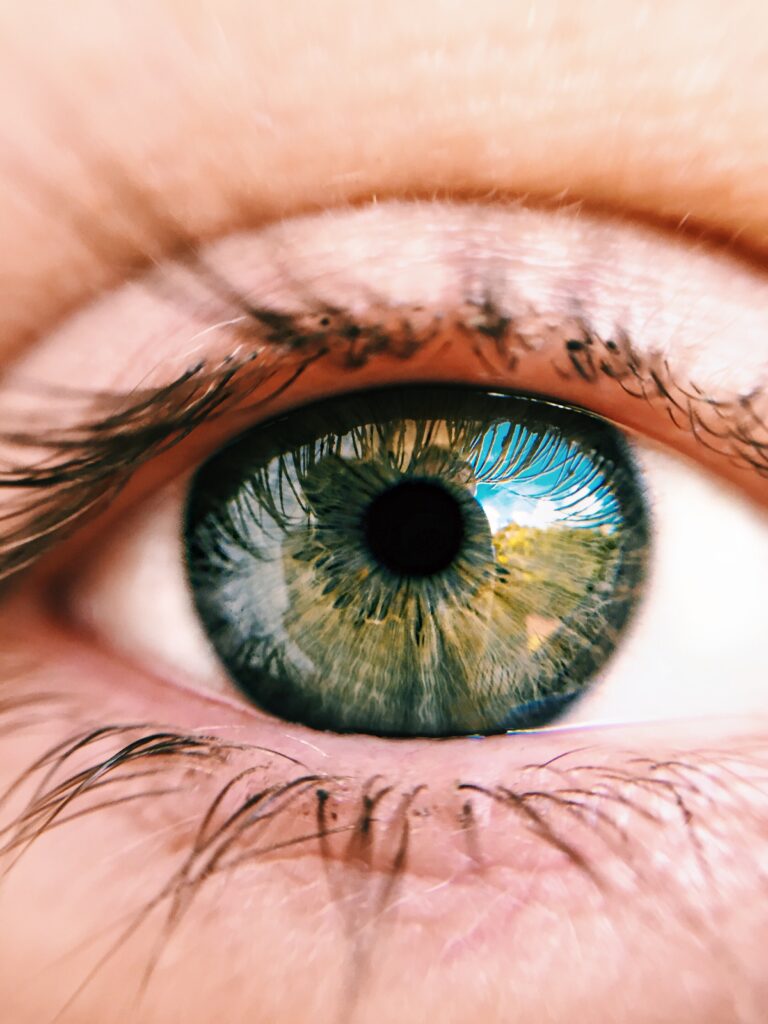The spirit is multifaceted and Chinese medicine has an eloquent description and understanding of its subtle layers. This article dives deep into the Five Spirits. Read on to learn more.
One of the things that made me fall in love with Chinese Medicine (CM) was the beautiful and poetic way it explains our universe, our world, the human body, and our health. It dives deep into the pathomechanisms behind imbalances/disease and explains it eloquently, in accordance with nature. It stems from rich cultures that were inspired by idealisms such as Taoism, Confucianism, and Buddhism as well as an acute and mindful observation of natural rhythms— all developed into an incredible and holistic system of medicine that has withstood the test of time and has changed our world and medical paradigm as we know it.
CM is adaptable and through the centuries it has evolved to meet the current needs of the unique societies and individuals that it interacts with. I believe this is why it is so effective because it recognizes the uniqueness in each person as well as the patterns they display that echo the world around them.
Our unique representation and colorful personality are illuminated by what is known in Chinese medicine as one’s Shen. The Shen is kind of a difficult concept to explain- but an easier feeling to experience.
“The human heart may “know” or understand unity through intuition and feeling, but the mind may never “know” unity, for its evaluative process equips it only to understand the pieces and parts of material existence.”- author unknown
The Shen’s most similar translation is to our soul or spirit, but more than that, as it is our mental activity and consciousness as well. It is linked to our spiritual and emotional activity, it is how our bodies process sensory/intuitive information and how the body/mind reacts to it in a way that is associated with our true nature.

The Five Spirits- Types of Shen 五 神
As with many aspects of Chinese Medicine, the theory runs deeper than just this first explanation. Each Yin Organ (Heart, Kidney, Spleen, Liver, and Lungs) has its own unique representation and aspect of the greater Shen. The Five Shen are these aspects of the spirit and each Chinese Medicine yin organ is paired with its own Shen. (shen, zhi, yi, po, hun respectively.)
What I especially love about this theory is that it takes the pressure off of our central nervous system to be the commander of our emotions, how we take in information and process it, and react to the world around us. It spreads our emotional processing network throughout our system, divides tasks and aspects of our personality to our system as a whole, and makes imbalances and achievements specific to organ function. We are more than just our minds, we are a unique combination of nature that is being interacted with and received on so many different levels.
Lonny Jarrett, practitioner, author, scholar, and teacher of East Asian medicine states, “The character shen 神 for “spirit” can be used in two main ways, indicating personal or impersonal dimensions of the self. Shen can refer to the mind and its contents as they constitute the personal sphere of the individual to define the psychological self. In this regard, it denotes the capacity for cognition and the quality of expression of the life force as it animates an individual. We may refer to this dimension as shen with a lower-case “s,” denoting its relatively personal, microcosmic nature.”
shen: Emperor of the Heart
The overarching theory of this mind-body-soul connection is called the Shen, capital “S”. But the subcategory of the spirit associated with the Heart and the Fire element is also known as the shen, a bit confusing, but you will get the hang of it (I will capitalize when speaking of the overarching theory and will also capitalize the organ name from a CM perspective).
The physical and amazing heart organ itself, is essentially a pump with valves, but from a Chinese medicine perspective the heart, belongs to an integrated system that is infused with its own spirit and qualities, showing that true cardiovascular health is not just about physical fitness, it’s about deep contentment with one’s life and destiny. Happiness and love are often associated with the Heart representing a state of peacefulness. Stress or lack of self-expression can directly impact this organ’s function.
One’s shen is often attributed to the overall quality of their awareness. The Heart Organ system is associated with the element of Fire as our bodies are made up of a unique and constantly changing combination of 5 elements (fire, earth, metal, water, wood) and the fire element is one of expansiveness in all directions. It is associated with the color red, the season of summer, how our bodies respond to heat, the bitter taste, the sound of a person’s laugh, and the quality of our blood vessels. It’s associated with an area of the body called the Shaoyin, the pathway of the meridian. The aspect of our spirit that is housed in the Heart is called the shen,
I feel that the easiest way to sense the shen is through someone’s eyes. You know when you see someone and you catch their gaze and see that sparkle in their eyes…that my friend is the shen. Hopefully, you have felt that here with someone today. And if you have, go out of your way to say hi. You know that old saying “the eyes are the windows to the soul” that is speaking of the shen. Your heart emits an electromagnetic field that reaches much further than the boundary of your skin, your vibe if you will.
Zhi: the Kidney’s Willpower
The Shen of the Kidney system is known as the zhi, and translates to the aspect of yourself associated with one’s willpower. Zhi is associated with the element of water within us, and it carries with it the energy of the Minster of the body (the Heart being the Empress). It guides the aspect of yourself associated with your intentions and desire for accomplishment or willingness and effort needed to accomplish things.
The Kidney system, yin-yang paired with the Bladder, is part of the water element, and governs our underlying life force, known as our jing, and houses the aspect of our spirit known as the zhi.
What do you think of when you hear “willpower”? This aspect of yourself is associated with your ambition and deep purpose in life, or one’s destiny, and the underlying energy that moves us towards it. When a person’s zhi is balanced, they tend to feel a sense of ease and purpose in being, and can “go with the flow” of life more readily.
One’s zhi can get depleted from poor lifestyle choices, such as staying up too late on a consistent basis, not taking proper rest when feeling tired, or saying yes to things when you really want to say no… A few ways to help strengthen the zhi are;
- Cultivate mindfulness, by engaging in an activity fully, and slowly.
- Trying something new that you have always wanted to try.
- Start a practice and stay consistent with it for a month
- Rest when your body asks for it, and practice rest in multiple forms, social, physical, technology, and emotional…
Yi: Intellect of the Spleen
The spirit of the Spleen, and hence the Earth element, is known as the yi or one’s intellect. It is the aspect of yourself that observes the world around you and conceptualizes what relationships, food, emotions, and activities will help you reach your needs and actualize your intentions. When the yi is unbalanced—overthinking, or a form of pensiveness and worry can develop as we begin to overanalyze our options and choices, and this can damage the Spleen. When in balance our spirit feels in line and we can clearly see our options.
The yi is associated with the Spleen, one of the most important organs of the digestive system from a TCM perspective, and helps us to “digest” your reality. It helps to process emotions, relationships, and choices. Imbalance of the yi is a very common pattern in the modern world, people tend to get caught up in overthinking, over-processing, over-planning, and overall too much business. This is an aspect of the spirit that many know well. Ways to help strengthen the yi, and bring more balance is to find a task that needs attention and give your all to it, this can be as minuscule as a game or as deep as meditation.
Po: Corporeal Soul of the Lungs
The spirit of the Lungs is the po or corporeal soul, associated with the Metal element. This aspect of one’s spirit is linked with physicality and mortality. It helps us express our immediate desires and goals that are achievable within only one lifetime. It has a physicality to it that the other spirits do not have, and is said to die with when the body dies, as others are thought to live somewhere in nature. It reminds us of our physical limits and the process of letting go, aging, and death.
This aspect of our spirit is in tune with our nervous system, and how we respond and react to sensations. Many think that the po can be experienced in the space and time after we exhale, in the quiet emptiness before we inhale…
Hun: Ethereal Soul of the Liver
The aspect of one’s spirit that is associated with the Liver is known as the hun, the ethereal soul. This is a very subtle aspect of our consciousness.
In an article written by Giovanni Maciocia he states, “The hun provides the Shen (which is responsible for rational thinking), with intuition, vision, and inspiration. It also gives the Shen “movement” in the sense that it allows the Shen the capacity of insight and introspection as well as the ability to project outwards and relate to other people.” He continues to state that the “Hun provides movement to the psyche in many ways:
- Movement of the soul out of the body as in dreaming,
- Movement out of one’s everyday life as in life dreams and ideas,
- The movement towards others in human relationships,
- Movement in terms of plans, projects, vision,
- Movement in terms of creativity, inspiration.”
The Liver organ system controls the free flow of Qi within our body
As we dissect these aspects of our personality, body, and spirit, we can begin to learn more subtle aspects of being. From a practitioner perspective, we can help to guide people closer to their true nature. From a student or patient perspective, our we can continue the deeper learning about our inner workings and hopefully gain more mastery and control of our minds and lives.
“Everything that appears in the physical realm is always connected with energy flow at the invisible level.”
-Nan Lu
Resources
- Nourishing Destiny: The Inner Tradition of Chinese Medicine– written by Lonny Jarrett
- Shen and Hun: The Psyche in Chinese Medicine
